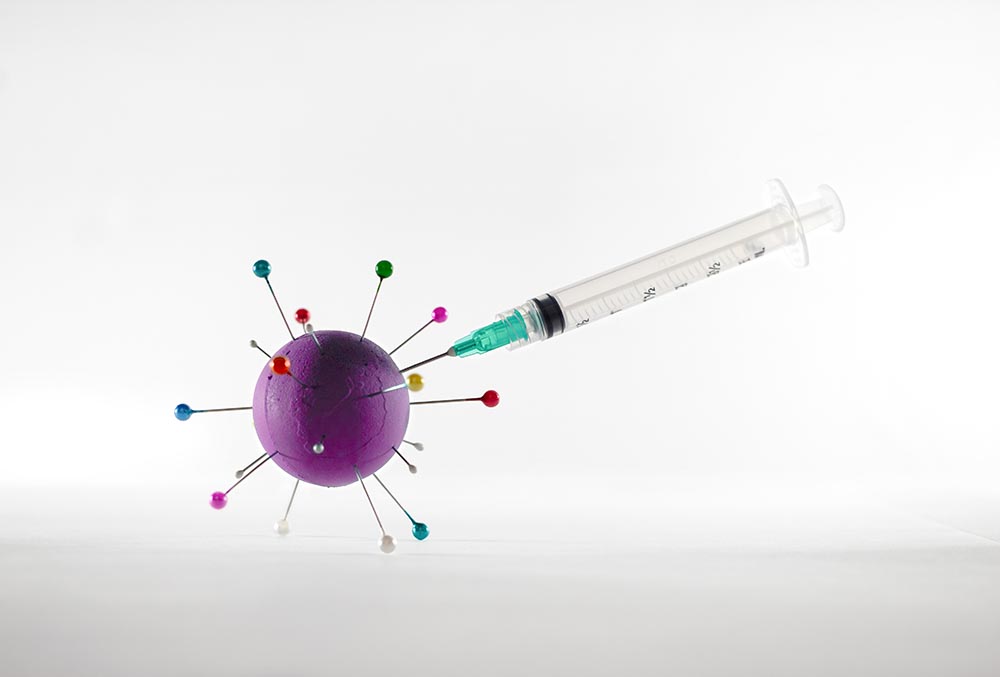Cancer Patients: COVID Vaccine
Comprehensive Cancer Center physicians are often asked questions about how other treatments or therapies, such as vaccines, can affect patients in our care. The doctors are grateful that patients ask these, and all other questions, as it’s important for oncologists to know what’s going on in patient’s medical lives to ensure treatment is optimal at all times.
A recent study from National Comprehensive Cancer Network shows vaccines are safe for those with cancer.
This new research posted in the February 2022 issue of Journal of the National Comprehensive Cancer Network confirms that mRNA vaccines for COVID-19 are just as safe for people with cancer as they are for cancer-free individuals. Researchers from Fox Chase Cancer Center tracked short-term side-effects from more than 1,753 recipients of the Pfizer BNT162b2 vaccine and found no additional reactions for patients undergoing active cancer treatment (surgery, chemotherapy, immunotherapy, or radiation therapy) or who had completed treatment.
The results come from in person, phone and online surveys given to people who received two doses of the mRNA vaccine, three weeks apart, between February 16 and May 15, 2021. Nearly 1,183 people with a history of cancer responded to both surveys, with 17.8% currently undergoing treatment. Respondents experienced pain at the injection site, muscle pain, joint pain, fever, chills, headache, nausea, and fatigue at similar rates as those reported by people without cancer from the original clinical trials. Adverse effects for people undergoing immunotherapy also mirrored those in the general population.
For patients with cancer, it is especially important to clarify the risk of vaccination because these patients are more likely than healthy individuals to contract SARS-CoV-2 and more likely to become seriously ill if infected. Those with hematologic malignancies and lung cancer are particularly vulnerable. As a group, patients with cancer infected with COVID-19 are reported to have a mortality rate three times that of people without cancer.
Despite their vulnerability to infection, patients with cancer were not included in most pilot investigations of the SARS-CoV-2 vaccines and were rarely analyzed as a group in follow-up studies. However, several lines of evidence indicate that these patients may present unique challenges when a strategy for broad vaccination coverage is initiated. Some of those challenges, including the imposition of stricter isolation, are logistical. Other challenges remain theoretical. Both the Moderna and the Pfizer vaccines are delivered as lipid nanoparticles containing mRNA that encodes the coronavirus spike protein.8 Lysosomal particles tend to accumulate in solid tumors, a phenomenon exploited in the delivery of some anticancer drugs. It is not known whether vaccines of this kind may also be diverted to malignant cells, thus altering tumor biology and perhaps interfering with the immune response to the vaccine in unforeseen ways.
A concern for Comprehensive Cancer, and other medical professionals, has been vaccine hesitancy by those who are priority candidates for vaccination. Within this group, patients with cancer figure prominently with it reported that 11.2% of patients with cancer who were offered vaccination refused it, usually out of fear of adverse events. Circulation of false or misleading reports may have fueled much of the alarm, underscoring the need for accurate reporting of scientific progress.
While current research suggest COVID vaccines are safe and helpful for those with cancer, the team at Comprehensive remains vigilant and looks at new data emerging to make sure recommendations are the best options for patients. Should any data present that is of concern, Comprehensive will adjust recommendations with each individual patient’s personal healthcare plan fully accounted for, and in accordance with current CDC guidelines.
Comprehensive Cancer Centers Can Help
Physicians at Comprehensive Cancer Centers provide a variety of treatment options for cancer, serous blood disorders, breast health conditions, pulmonary disease, sleep medicine and clinical research. To schedule an appointment with the team at Comprehensive, please call 702-952-3350.
The content is this post is not intended to be a substitute for professional medical advice, diagnosis, or treatment. Always seek the advice of qualified health providers with questions you may have regarding medical conditions.



